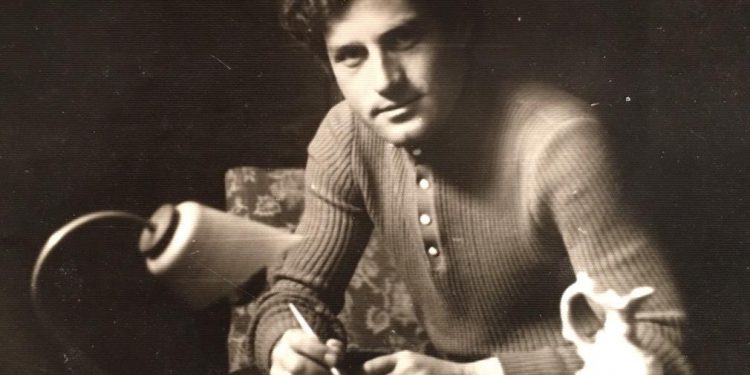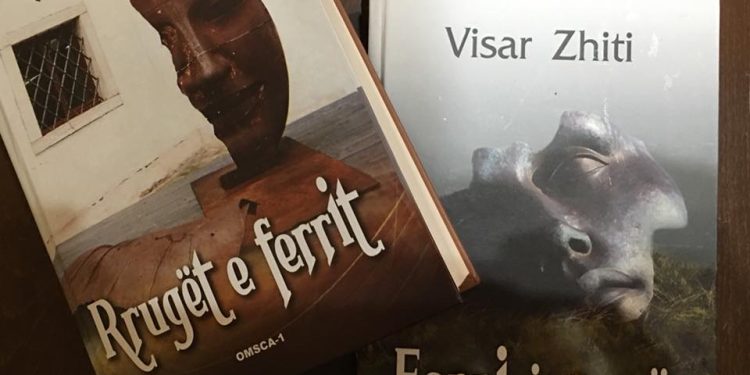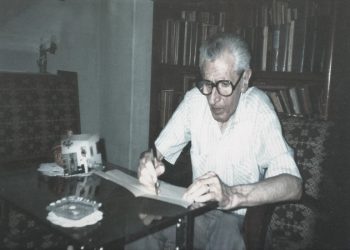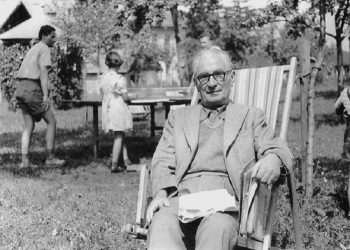From Shpendi Topollaj
The sixth part
Memorie.al / When the symbols of communism, after half a century of struggle, collapsed, there was such a loud noise that we woke up from our deep sleep. We opened our eyes, but not all of us believed what had happened: often, as a person sees some dreams that he takes for truth, he also sees some truths that he takes for dreams. Moreover, there were not a few who opposed this historic upheaval, with demonstrations and even threats. To overcome this situation, patience and wisdom were needed. We were brothers. As such, we had an intellectual, moral and spiritual duty to denounce the demagoguery of communism and the monstrous crimes of the red inquisition. Of course, the most reliable were those who had languished and suffered in prisons and exiles. Silence would really be a great sin of theirs…!
Continues from the previous issue
THE TIME THAT HAD BOOKS
-The book “Roads to Hell” by Visar Zhiti-
No one knows for sure how old prisons are, just as we are unable to determine when suffering and torture for opponents were invented. Be that as it may, one thing is certain: when man, with his boundless imagination, was able to create the mythological wonder, he did not forget to build copper boats to imprison both the indomitable warrior, Ares, and the beautiful and delicate daughter of to King Akris, Danae, whom he had dared to love.
And as if he had not remained here, man shaped the kingdom of the underworld, that is, the underworld, where Hades and his wife, Persephone, who had remained there because she ate the seeds of an accursed pomegranate, sat on a golden throne, having servants around and Minos, Aeacus and Rhadamantus, as inflexible judges, because they apparently had a terrible guard on their side, like Cerberus, others, like Tantalus and Sisyphus with friends, tried the monstrous torturer.
I will suffice to mention, that it was here that the twin Aloid brothers tied them with snakes to a pole, around which an owl tormented their ears with its mournful cries.
It is not the place to say what they had done, but it is well known that none of the convicts who crossed the five poisoned rivers were punished like the noble man, the super talented poet Visar Zhiti, who in poetry “Homer”, had said:
“My Iliad is read everywhere,” he (Homer) said, “Your Iliad is not finished yet and is gone…”, because according to experts, who would be envious of even the judges of Hades, “The poem ‘Iliad’ of Homer, describes the destruction of ancient Troy by the Greeks, such an Iliad therefore, our destruction, is also waiting for the author of these verses”!
As can be seen, the fantasy of the people of the first period of civilization had a shortcoming: it never predicted what could happen in an ideological state, especially when it calls itself communist. I want to believe that this was a great fate for world culture, because otherwise, God knows what would happen to the philosophical, historiographical and literary legacy of all those unique thinkers and writers.
However, the wonder appeared in the form of a paradox, when the age of mammoths had set, on the stage of history, human mammoths appeared. Blessed is he who encounters them. O God of Kadare letters! Where did you find inspiration and wisdom when you wrote?
“When super-beasts shook the world,
The man on his knees did not sit down,
There were mammoth years,
But there was never their time.
With terrible horns and cob cries,
On earth they put the beast law:
Yet it was the time of men,
And this is their former planet.”
You must have the mind and heart of Visar Zhiti, who “sprinkled – as he says – with the blood of murdered books”, to manfully face medieval court sessions, resounding such verses, for which he writes with love and gratitude. : “Who spoke so majestically?
Is Kadareja in the hall? Who sent me this living piece of soul, the only one I found in the abyss? For me to stay… while the sobs were diminishing inside me”! And why all this?! Just because he wanted to publish a book.
And it is mentioned: “It is impossible not to be stunned, before the martyrdom of the people of letters, of those who create and those who read”!
After the ordeal, within the time frame of 1998 – 2001, he who we are used to read every day from such a beautiful poem in the newspaper, writes in 470 pages, the apology of freedom of thought, the stigmata of the inquisition, the triumph of culture over ignorance, of dignity over humiliation, but now, in the form of poetic prose, among the most extraordinary ever written.
Never has an essay so long been seen, that throughout the kilometer length of its lines, preserves the same artistic height, the same sound, the same rhythm, why not, and the same almost heavenly musicality.
Only a mean or ungodly person can express from now on with cynicism, that; “prison literature drowned us”! After the humane books of Uran Kalakulla, Fatos Lubonja, Beqir Ajazi, etc., without mentioning prof. Arshi Pipën, Visar Zhiti, in the voice “burgology”, puts, as the name implies, a real treasure, which, to say the least, would be the envy of the world-famous “burgologists”.
On the other hand, it must be affirmed that he does honor with his rare talent to all prisoners of conscience, in whom, as the book says, the wrinkles are lines of poetry, never written, the skin is parchment and the wounds have so much a lot of drama, like no scene, there has been so far.
You encounter them on every page of this book and you can’t get out of your mind, the painting of the painter from Crete, El Greco, entitled “The Opening of the Fifth Heaven of the Apocalypse”, made when the painter was in Torquemada Spain, is located in New York’s Metropolitan Museum of Art. Forgive me for drawing your attention to these tragic coincidences: Spain of centuries ago and Albania of years ago, where the characters, like the souls killed at the foot of the altar, call out the same; “Oh God! You are holy and you keep your promises!
How long do we have to wait for you to call the inhabitants of the earth to court, to punish them, why they killed us”! For the crimes committed by the tyrants, who desecrated the life of Visar Zhit and his companions, leaving nothing to the mangu Krum Khan of Bulgaria, who toasted with his boyars with the silver-washed skull of Nikephoros, the first of Byzantium, we should not expect them to apologize for everything they did.
Dostoevsky once said: “Man and citizen die in the being of the tyrant, it is quite impossible for him to return his human dignity, remorse finds no shelter in his soul.” So, what is Visari looking for with this book, where, moreover, it does not incite revenge, what elevates it more, until he claims: “I don’t want to accuse.
I don’t even have the power to be fair.” Neither more nor less, except to carry out the mission that has, as Sergei Konjenkov observes, to have the premonition of the storm, much earlier than the thunder and lightning. That when history is forgotten, it repeats itself. In the realm of Hades, they are always waiting. In the future our bad luck, if anyone is ever in danger, let him have this book, as a comrade in arms.
Then, Visar himself said an indisputable truth: “Not every book goes to prison, just like not every person. The books that go to prison are like Shakespeare’s horse, which is given a kingdom. And therefore, regimes kill books. Not every book. No”! Visar Zhiti’s book; “Roads of Hell” has not been advertised, nor has the criticism yet had its say.
However, the fact that it is not found in the Public Library or in any bookstore is very significant, as it has been devoured by readers at a dizzying speed. It is understandable that this book, with chilling truths, written by an author who talks about the past, with a view to the future, being welcomed like few other books, which is not so common, nowadays, has sealed complete success and overcome the need, for the word of criticism.
This, I want to believe, is the worthiest reward that is given to the sufferings of Visar Zhiti, without which, no matter when, we would not wish it on anyone, not even a day of those where he left his youth and his dreams. girl, nor our literature, you would not have a work of the most accomplished, nor fellow sufferers, would not have such a reliable defender, nor freedom of thought, would not have such a fiery fighter, so erudite and so eloquent simultaneously. Memorie.al
The next issue follows















